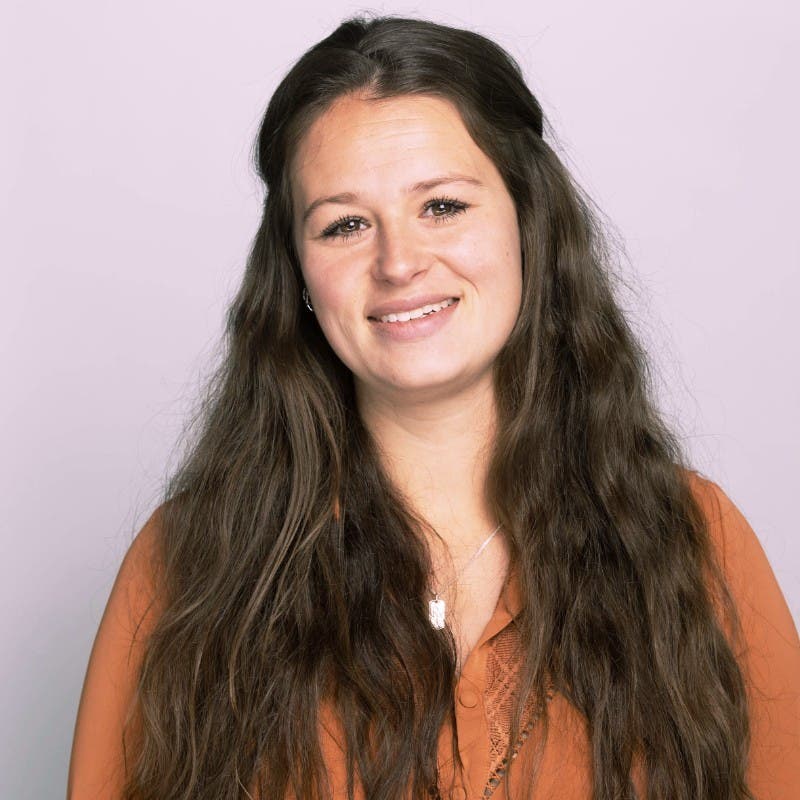The impact of AI in SEO
The start of Friends of Search couldn't have happened without a lightning-fast AI session by Aleyda Solis, navigating through her extensive presentation! We can no longer ignore AI, and to remain competitive in the market, Aleyda Solis introduced her own developed AI approaches. She discussed how we, as SEO specialists, can utilize AI into our work today. She categorized these approaches as "The good, the bad, and the ugly." "The good" refers to automating the right tasks using appropriate tools and prompts, while "the bad" involves mass production of low-quality content.
The rollout of the Search Generative Engine (SGE) has begun and is gradually transforming the Search Engine Results Page (SERP) more and more into an SGE. But Google wouldn't be Google if there weren't extensive testing first. From few links to many in-text links to link carousels at the top of the SERPs. This demonstrates that anything can still happen. But how do you then prepare for the future? By conducting an impact assessment. This analysis can identify potential risks to your customer journey by examining the top 10 ranking pages, SGE ranking pages, and potential traffic erosion. Fortunately, we don't have to reinvent the wheel, as a handy template was shared!
Aleyda Solis's conclusion? AI doesn't pose a threat to SEO; Use it wisely, it can take over tactical optimizations, but the human aspect remains essential for the strategic framework and long-term vision!
Good site speed is not important but absolutely necessary!
The technical focus of the day was the in-depth session on site speed. Arnout Hellemans provided us with some simple solutions, such as introducing the AVIF image format, which maintains quality while enhancing crawler parsing efficiency.
The primary optimization challenge highlighted during the session was website caching. Arnout Hellemans emphasized that this aspect is the most significant obstacle in achieving optimal speed. Caching involves storing resource versions to minimize server requests, thus boosting performance. However, over-caching can negatively impact site speed. The solution lies in selecting the right CDN to ensure fast and seamless caching.
Now that we've identified the greatest opportunities, it's essential to persuade stakeholders to prioritize working on site speed. A clear business case can assist with this. This case should illustrate the potential increase in conversions and revenue resulting from these optimizations.
Quality over quantity, but why and how?
"Build muscle, eat well, and cut fat to show Google the quality," was the essence of Kevin Indig's session. Increasing the number of content pages doesn't necessarily mean better visibility, as evidenced by various examples of websites where the number of crawl requests increased, and visibility decreased. Conversely, a significant cleanup of content and a focus on quality resulted in a significant increase in visibility. The essence of the story: less is more, and the user first when creating content, solves the user's problem quickly and easily.
The quality does not always have to be in text but can also be images, interactive elements (quizzes) or FAQs. In this way, in addition to quality, you also create engagement and Google will reward you for it.
SEO myths uncovered: opinions from the panel of SEO experts
At the end of the day, the 4 key speakers sat on a panel where several SEO myths were discussed to close this insightful day.
- "Backlinks do matter." While opinions differed, there was agreement that branding is becoming increasingly important and that organically acquiring links will ultimately yield more.
- "Blackhat SEO works!" This was Barry's favourite topic of the day. Every SEO expert agreed: it works, often thanks to creative solutions. But in the long run, this only causes harm.
- “SEOs have tunnel vision.” Absolutely! Many SEO specialists are so entrenched in the field that they hesitate to look further. The specialists who dare to look further ultimately achieve more success.
- “AI will kill SEO.” At the moment, it doesn't seem likely, but SEO can evolve into new forms, and this is the right time to explore them. However, people will always be searching for solutions to their problems. As long as that's the case, SEO will continue to exist.



